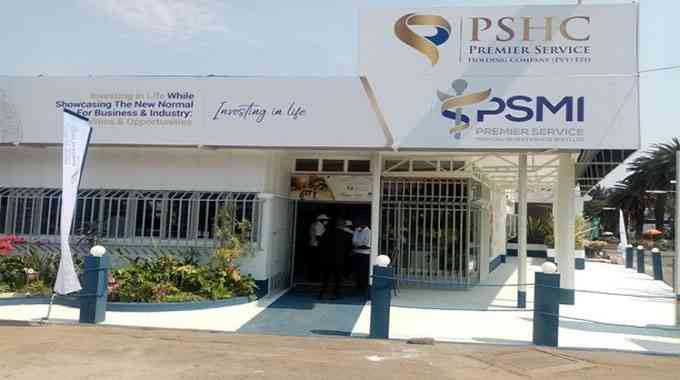
REVELATIONS of the struggles of the Premier Services Medical Investments (PSMI), revealed elsewhere in this edition, unravels yet another sad chapter of government’s monumental failure of running entities under its purview. PSMI shut down 120 of its 155 facilities last month as the entity battled to settle a four-month salary arrears bill compounded by the arrest of PSMI executives on allegations of defrauding the entity of millions of United States dollars at a time when the organisation is struggling to offer medical services to its clients who are mostly civil servants. The government workers are members of Premier Services Medical Association which are served by PSMI
That government is a key stakeholder in this medical institution which is in such a shambolic state is a reflection of its gross incompetence in running enterprises in which it is a major shareholder.
It is a damning indictment of the ruling Zanu PF government that the gross domestic product contribution of state-owned entities (SOEs) has plummeted from 40% to less than 12%. For years, SOEs have not been performing owing mostly to poor leadership, bad governance, mismanagement of revenues and government funds, and increased corruption. One only needs to look at how the steel giant Ziscosteel was reduced virtually into a shell under the stewardship of the government. According to the Zimbabwe Economic Policy Analysis and Research Unit (Zeparu) more than US$20 billion in potential revenue has been lost since Ziscosteel shut down in 2008.
State entities have become feeding troughs for the political elite which continues to bleed the fiscus. Only last month the ruling Zanu PF party wrote to parastatals asking them to buy exhibition space at its congress held last week. The exhibition spaces demarcated at 3mx3m and 6mx3m cost US$3 000 and US$6 000, respectively, or the equivalent in local currency. This has further drained parastatals crippling their ability to contribute to the government’s virtually empty coffers. Since President Emmerson Mnangagwa took office in 2017, his government has been waxing lyrical about a major privatisation drive of loss-making state enterprises. It has come up with a comprehensive list of entities to be privatised which include telecommunication companies TelOne and Netone.
However since the announcement of the ambitious privatisation programme in 2018, very little has been done on this front. The drive for privatisation has turned into mere waffle by the government as plans to wean off loss-making state-owned entities from the Treasury remain in limbo. Deputy chief secretary responsible for Policy Analysis, Coordination and Development Planning in the Office of the President Cabinet Willard Manungo has of late also been talking excitedly about privatisation plans of state entities. However it is hard to believe that a programme, which has been on government’s agenda since the early 1990s when the Privatisation Agency of Zimbabwe was formed with virtually no progress, will gain traction under Manungo nearly 30 years later. Government failure reflected in PSMI’s struggles, a major tragedy for government workers and struggling pensioners, is a path well-trodden of incompetence and lack of political will.






